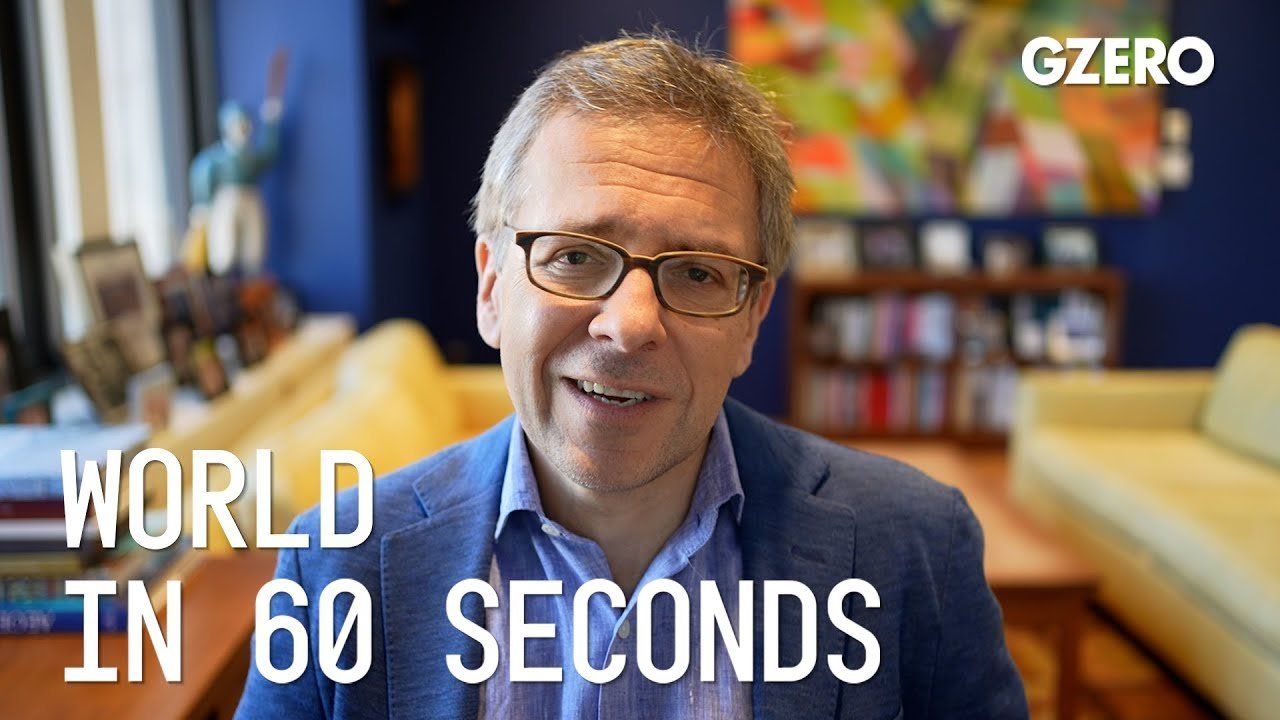How is the Ukrainian counteroffensive going? Pro-democracy opposition parties swept the Thai elections. Will they be allowed to govern? Is Assad's invitation to COP28 a sign of Syria's return to the global stage? Ian Bremmer shares his insights on global politics this week on World In :60.
How is the Ukrainian counteroffensive going?
Well, it's just started. It's a little premature to ask me that question. Right now you're looking at probing attacks, artillery for the Ukrainians to try to assess where Russian defenses might be weakest so that when Zelensky gives the order for the full counteroffensive, it's starting, but not with masses of troops, that it's most likely to succeed. There is general optimism right now. The Russians are dug in along three lines of defense in southeast Ukraine. There's pretty significant optimism the Ukrainians will be able to break through one, at least maybe two of those lines of defense, which puts them in striking distance of artillery of the coast of the Sea of Azov, which means being able to threaten the land bridge to Crimea. That's a pretty big deal. It improves Ukraine's ability to negotiate if that happens after the counteroffensive is over.
Pro-democracy opposition parties swept the Thai elections. Will they be allowed to govern?
Well, the elections were free. They were fair, but the system structurally advantages the military and the pro-military parties and electors. The military gets to determine basically a large percentage of those people that form a government. What that means is that even with a massive win for the pro-democracy opposition, the possibility that they form a government is pretty much a coin flip. It's about 50-50 right now. The structural disadvantages for pro-democracy forces in Thailand are that great. It's going to be a very hard-fought few weeks and we'll see where it goes, but I would not yet hold my breath that this is a meaningful transition election in Thailand. Still though, there's an opportunity, as there isn't in Turkey, as Erdogan is likely to win, very likely to win is in the second round.
Is Assad's invitation to COP28 a sign of Syria's return to the global stage?
I don't know if I'd say the global stage. Remember this is in the Emirates. It's Abu Dhabi. There has been a re-engagement of the Gulf States with Syria's Bashar al-Assad. That does not change the way the United States is feeling about Assad, or most of the Europeans for that matter. But despite the red line and the whole, "Assad must go," that President Obama once said, and Obama's well gone, Assad is still there and Assad is now increasingly someone that you engage with internationally. It is harder to say no to rogue states when other countries are prepared to deal. Hey, Venezuela is now pumping more oil and Chevron's licenses have been re-approved. Any other gas exploration is now happening. Same Maduro, but the United States with the war in Russia going on and with Ukraine is saying, "Hey, we need to work with these guys." Basically what we're seeing is that more and more tolerance for countries and rogues that act in despicable impunity, but nonetheless, less capacity, less willingness of the world to bring them to bear, and Assad is a piece of that.
More For You
Singapore was one of globalization’s biggest beneficiaries. Ian Bremmer looks at whether the city-state can survive in a world where the economic order that drove Singapore's rapid rise starts to unravel.
Most Popular
Think you know what's going on around the world? Here's your chance to prove it.
Xi Jinping has spent three years gutting his own military leadership. Five of the seven members of the Central Military Commission – China's supreme military authority – have been purged since 2023, all of whom were handpicked by Xi himself back in 2022.
